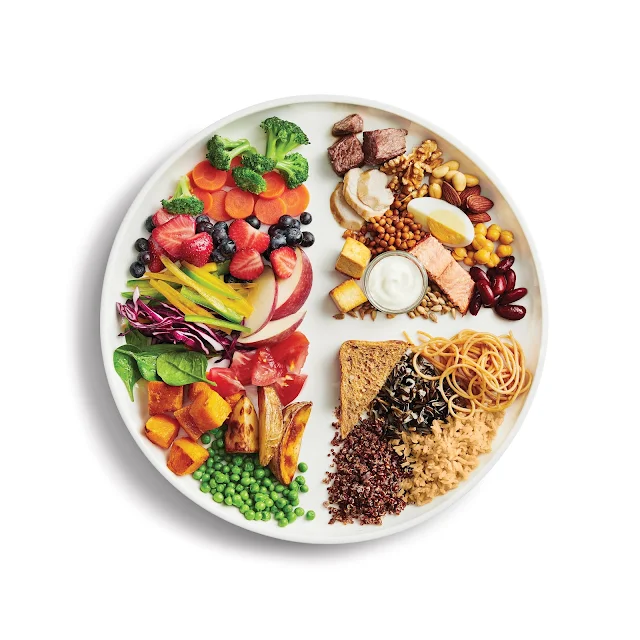 |
| Click to link to the new Canada Food Guide. |
The new food guide is out! The new food guide is out!
Most Canadians will be as excited about the release of the new national food guide as they are about a new phone book coming out (does that still happen?).
But the updated food guide is here, and I am eating it up for a variety of reasons.
What our food guide should be is an evidence-based, easy to understand guide to lead Canadians toward patterns of eating that will minimize their risk of developing chronic diseases (including obesity and diabetes), as well as minimize their impact on the environment.
The new guide does that.
Instead of highlighting four food groups (fruits/vegetables, meat and alternatives, milk and alternatives, and grains), it looks at fruits/vegetables, grains, and protein.
Here are a few of the industry players that were involved last time:
- Brewers of Canada
- The Canadian Meat Council
- The Canadian Sugar Institute
- The Canola Council of Canada
- The Confectionery Manufacturers Association of Canada
- Dairy Farmers of Canada
- Edible Oil Foods Association of Canada
- Food and Consumer Products Manufacturers of Canada
- Kellogg Canada Inc.
- Refreshments Canada
- Weston Bakeries Limited
- The Beef Information Centre
This time? None.
 |
| The new Canadian Food Guide is similar to other evidence-based dietary advice. |
Some of my take-aways from looking at the new guide:
- beverage of choice is water
- recommends drinking less fruit juices - 1/2 cup a day
- does not exclude any food groups, but advises Canadians consume less red meat, dairy, starchy foods, and processed foods
- suggests people improve their diets by cooking more, and eating out less
- also highlights the importance of eating together (although I believe they should have pointed out the benefits of cooking together as well)
- based on an emerging scientific consensus about plant-based diets and limiting things like sugar, sodium and unhealthy fats
- it reflects trends that have already begun, such as eating more plant based protein, and drinking alternative milks
The simplified, evidence-based new guide recommends a meal look something like this:
- 1/2 of meal is vegetables/fruits.
- 1/4 of meal is protein foods, emphasizing plant-based foods like beans and lentils, but also including small amounts of meat, dairy, and eggs.
- 1/4 of meal is whole grain foods.
As can be expected, there has been a backlash to the new guide, with one reviewer calling it an "elitist" document. It's a sign of the times when a food once shunned because of its association with poverty and the poor, the lowly (but nutritious) bean, is all of a sudden part of an elitist conspiracy.
Finally, it is good to see that our new food guidance from our national government is in alignment with the recently released "Planetary Health Diet". That report claims that the diet they have come up with would save millions of lives and mitigate climate change at the same time.
And it's tasty. You really can't lose.
Unless you are part of the food industry that makes sick, fat profits while making us sick and fat.
"Every year in Canada, 21,000 - 47,000 Canadians die from diet and weight related illnesses, costing taxpayers between $6.6 and $11 billion dollars."












